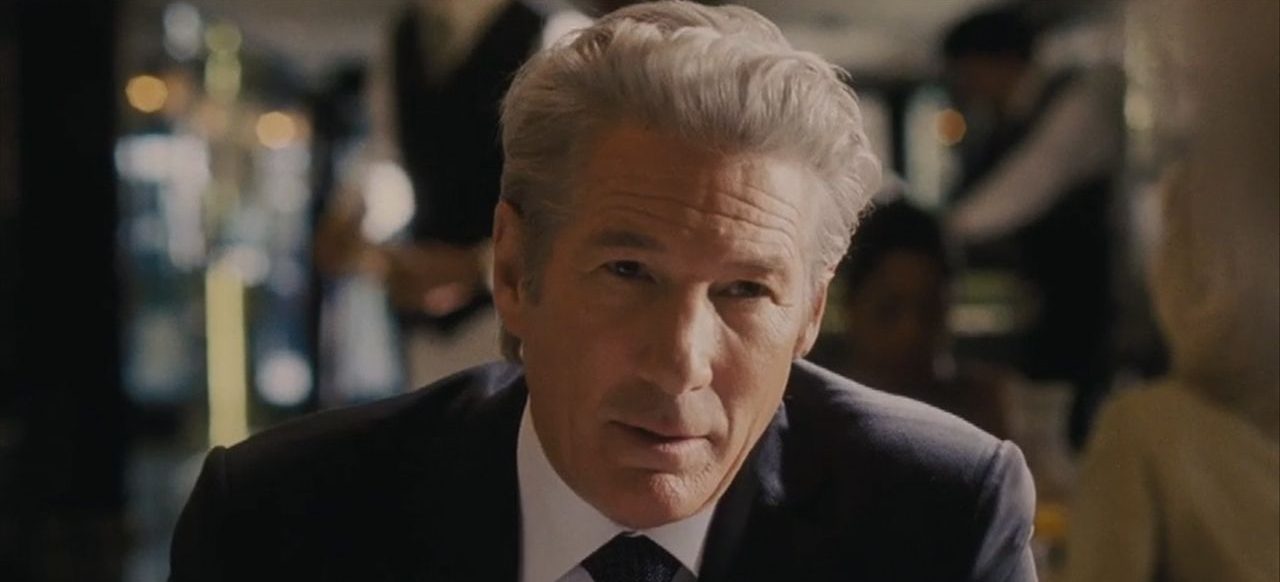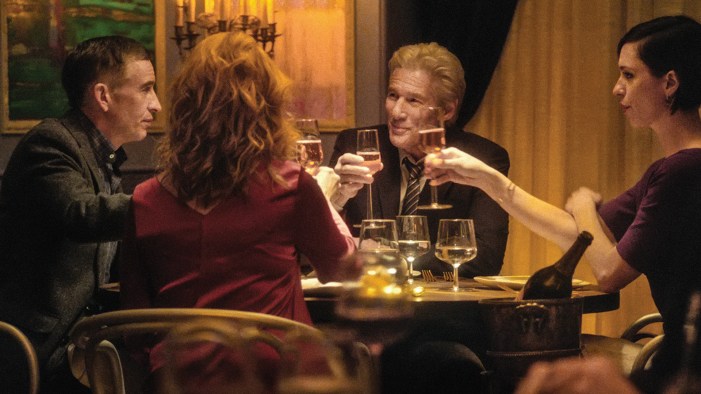
The name of this film could just as easily have been “Wealthy White People Problems,” because that is really all it is about – four people who have the wealth, education, and privilege to debate whether or not they even have to consider doing the right thing. That doesn’t mean The Dinner isn’t engaging and worthwhile – it is. But it does mean that a large portion of the audience is going to check out at a certain point because they simply cannot understand the central conflict between the couples. The Dinner embraces a limited audience, for sure.

Paul (Steve Coogan) and Claire (Laura Linney) are a lower upper class couple getting ready for a dinner with Paul’s brother, Congressman Stan Lohman (Richard Gere), and his second wife, Katelyn (Rebecca Hall). We know early on that there is “something” that needs to be discussed. The film starts off with a flashback to their children at a party, and then the children walking the streets looking for mischief. What we discover, after much meandering, is that their sons were both involved in a crime, and they are meeting to discuss how to handle the situation. When the true nature of the crime is revealed, that is when most folks are going to detach in disgust.
And there is the central issue with the film: the crime itself. The crime is so disgusting, so vile, so evil, that we simply cannot empathize with any of the characters who want to do anything other than give the little bastards what they deserve. Even though they are their parents, we simply cannot put ourselves in their shoes. Richard Gere plays the sole voice of reason in the chaos, a nice subversion of what we expect going in to the situation. In fact, the films subverts many of our expectations throughout when we learn that Paul is suffering from mental illness and that Stan is a politician with actual values and a sense of morality. And no one does a character change like Laura Linney. This is akin to her work in Mystic River.

When the four actors are on screen, engaged in discussion, the film pops. When the kids are on screen, we can barely watch what is happening. The rest of the film is flashbacks showing us the brother-to-brother relationship, with one particularly dreadful Gettysburg sequence that goes on far too long and stops the film dead in its tracks. Coogan, who’s pretty terrific here, becomes a little grating as the film carries on in that his character starts responding to the pressure and intentional manipulation of his wife. It’s impossible to respect Paul, particularly at the conclusion of the film. One character aside, it’s difficult to respect any of these characters. They are wealthy, privileged, genuinely awful people who just do a good job at pretending they’re not. We see early on where their children probably learned this horrendous behavior.
The Dinner comes to us from the great Oren Moverman, whose first three films (The Messenger, Rampart, Time Out of Mind) were bravura acting showcases. The Dinner follows suit, in terms of performances, but falls short in the script department. I really feel like Moverman miscalculated the audience’s response to what the kids do in this film. I am sure he wanted it to be intense and wicked, but he pressed the gas a little too hard, and crashed into the entire film as a result. Moverman excels at taking difficult people and making them understood, as he did with the screenplay for Love & Mercy, but he just cannot make these characters seem like anything other than vapid, waspy, self-interested jerks.

For a large chunk of the film, The Dinner works. But, when it doesn’t, it’s painful. Not in a way that suggests the filmmaking is inept, but in a way that suggests there is a large rift between filmmaker and audience – one that can never be crossed. I watched audience members walk out of the theatre in disgust during this film, and I can understand why. I didn’t have that strong of a response, but I certainly understood that what I was seeing was ill-informed. I wish this film had worked better, I really do, because it could have been exceptional. Instead, we see shadows of what could have been and the loud, resounding thud of what, unfortunately, is.




